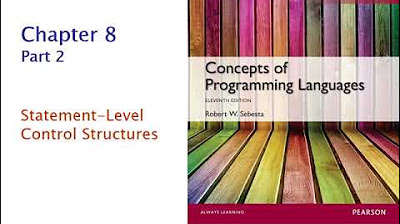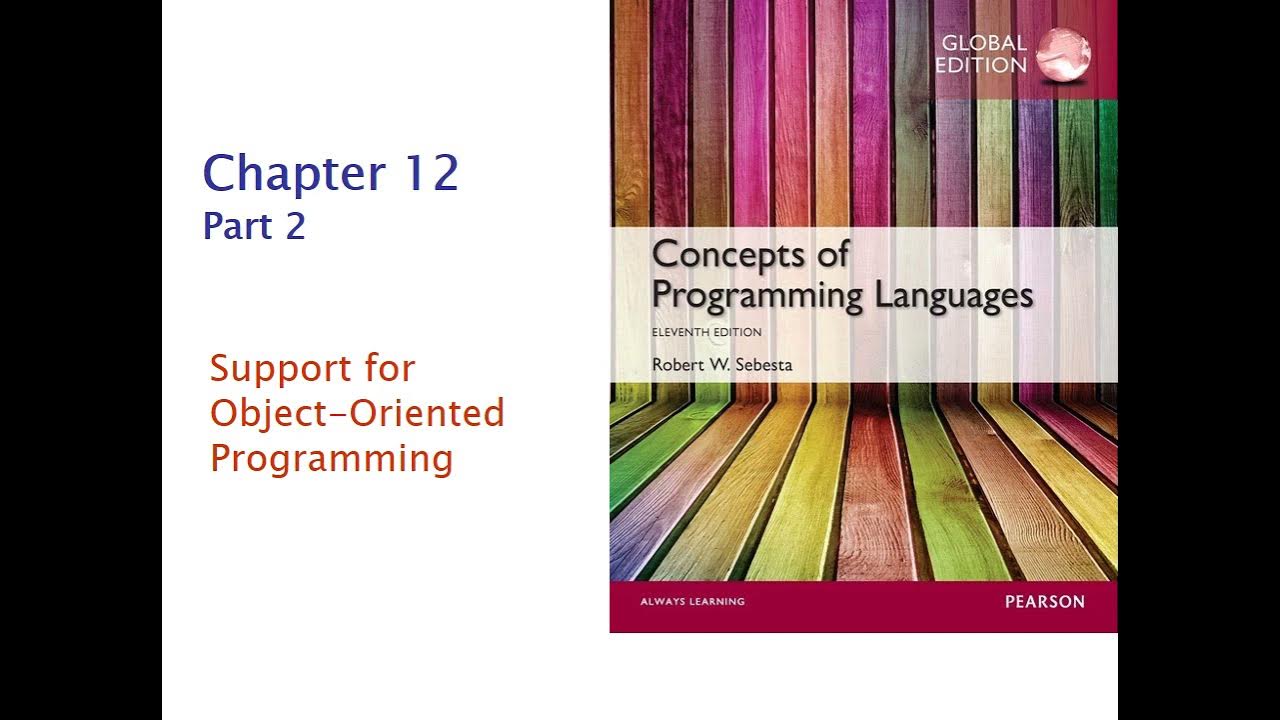Ada 004 - Lesson 2 - Ada and C
Summary
TLDRThis ADA University lecture delves into mixed language programming, focusing on integrating Ada with C. It covers Ada's unique features for interfacing with foreign languages, as outlined in the 2012 ISO standard. The lecture includes examples of importing and exporting subprograms and memory objects between Ada and C, utilizing the 'Interfaces.C' package for scalars, strings, and pointers. It also addresses potential issues with elaboration and the use of pragmas for generating import statements from C headers. A quiz tests understanding of these concepts, aiming to solidify the knowledge imparted throughout the lecture.
Takeaways
- 📘 The ADA programming language has unique features for interfacing with foreign languages, including C, as part of its ISO standard 8652 revision 2012.
- 🔄 The lecture covers the application of Ada's import/export aspects, link name, and external name in mixed language programming with C.
- 📚 It is recommended to start from the first lecture of the series for a comprehensive understanding of Ada and C mixed language programming.
- 🔑 The 'Interfaces.C' package is vital for interfacing Ada with C, providing basic types, constants, and subprograms for scalar and string data passing.
- 📝 The 'Interfaces.C.Strings' package allows Ada programs to work with C-style strings, offering type-safe operations and conversions.
- 🔍 Ada can import C function pointers and use them as access to subprogram entities, demonstrating interoperability between the two languages.
- 📌 The 'Interfaces.C.Pointers' package facilitates C-style pointer operations in Ada, including pointer arithmetic and array handling.
- 🛠️ The GCC compiler can generate Ada specifications from C header files using the '-Fdump-ada-spec' flag, simplifying the integration process.
- 🔒 Ada requires elaboration before accessing exported entities in a C main program, ensuring proper initialization and finalization.
- 📉 The quiz section of the lecture tests understanding of key concepts, such as importing/exporting subprograms, handling memory objects, and using Ada types with C pointers.
- 🎓 The lecture concludes with a quiz to reinforce learning, emphasizing the practical application of Ada's features for interfacing with C.
Q & A
What is the main subject of the lecture series from ADA University?
-The main subject of the lecture series is mixed language programming with Ada and C, focusing on the features of the Ada programming language that support integration with the C programming language.
What is the purpose of the 'convention' aspect in Ada when interfacing with C?
-The 'convention' aspect in Ada is used to specify the calling convention of a subprogram when interfacing with C, ensuring that the Ada program correctly calls C functions using the appropriate calling conventions.
What is the role of the 'external name' aspect in Ada when importing a C subprogram?
-The 'external name' aspect is used to identify the name of the subprogram in the C source code, allowing Ada to correctly reference the C function despite any naming differences between the two languages.
How can a C subprogram be imported into an Ada program?
-A C subprogram can be imported into an Ada program by declaring it with the 'Import' aspect and specifying the 'External Name' aspect to match the name of the C function. The Ada main program can then call this imported function using an Ada entity identifier.
What is the purpose of the 'Interfaces.C' package in Ada?
-The 'Interfaces.C' package in Ada provides basic types, constants, and subprograms that allow an Ada program to pass scalars and strings to C functions. It includes types that resemble C types, facilitating the interfacing between Ada and C.
Why is the 'Interfaces.C.Strings' package useful in Ada?
-The 'Interfaces.C.Strings' package is useful because it allows an Ada program to allocate, reference, update, and free C-style strings. It provides types and subprograms for working with C strings in an Ada program, ensuring type safety and ease of use.
What is the significance of the 'Interfaces.C.Pointers' package in Ada?
-The 'Interfaces.C.Pointers' package is significant because it allows the Ada programmer to perform C-style operations on pointers. It includes an access type pointer that is C-compatible and provides functions for pointer arithmetic and copying.
What is the issue that may arise when using a C main program with exported Ada entities that require elaboration?
-An issue that may arise is that the Ada elaboration code, which performs explicit initialization of exported entities, must be executed by the C main program before accessing the exported entities. This is done by calling an external function called 'Ada_Init'.
How can Ada generate import pragmas for entities defined in C header files?
-Ada can generate import pragmas for entities defined in C header files by using the GCC compiler with the '-Fdump-ada-spec' flag along with the name of the C header file. This generates an Ada package specification that imports the functions from the C header.
What is the importance of calling 'Ada_Final' in a C main program?
-The call to 'Ada_Final' is important in a C main program to ensure that all Ada finalization code is executed upon completion of the program. This is necessary for proper resource cleanup and adherence to Ada's deterministic finalization properties.
What is the recommended approach for handling C strings in Ada?
-The recommended approach for handling C strings in Ada is to use the 'Interfaces.C.Strings' package, which provides type-safe subprograms for converting C string pointers into Ada strings, ensuring proper memory management and avoiding potential runtime errors.
Outlines

This section is available to paid users only. Please upgrade to access this part.
Upgrade NowMindmap

This section is available to paid users only. Please upgrade to access this part.
Upgrade NowKeywords

This section is available to paid users only. Please upgrade to access this part.
Upgrade NowHighlights

This section is available to paid users only. Please upgrade to access this part.
Upgrade NowTranscripts

This section is available to paid users only. Please upgrade to access this part.
Upgrade Now5.0 / 5 (0 votes)





